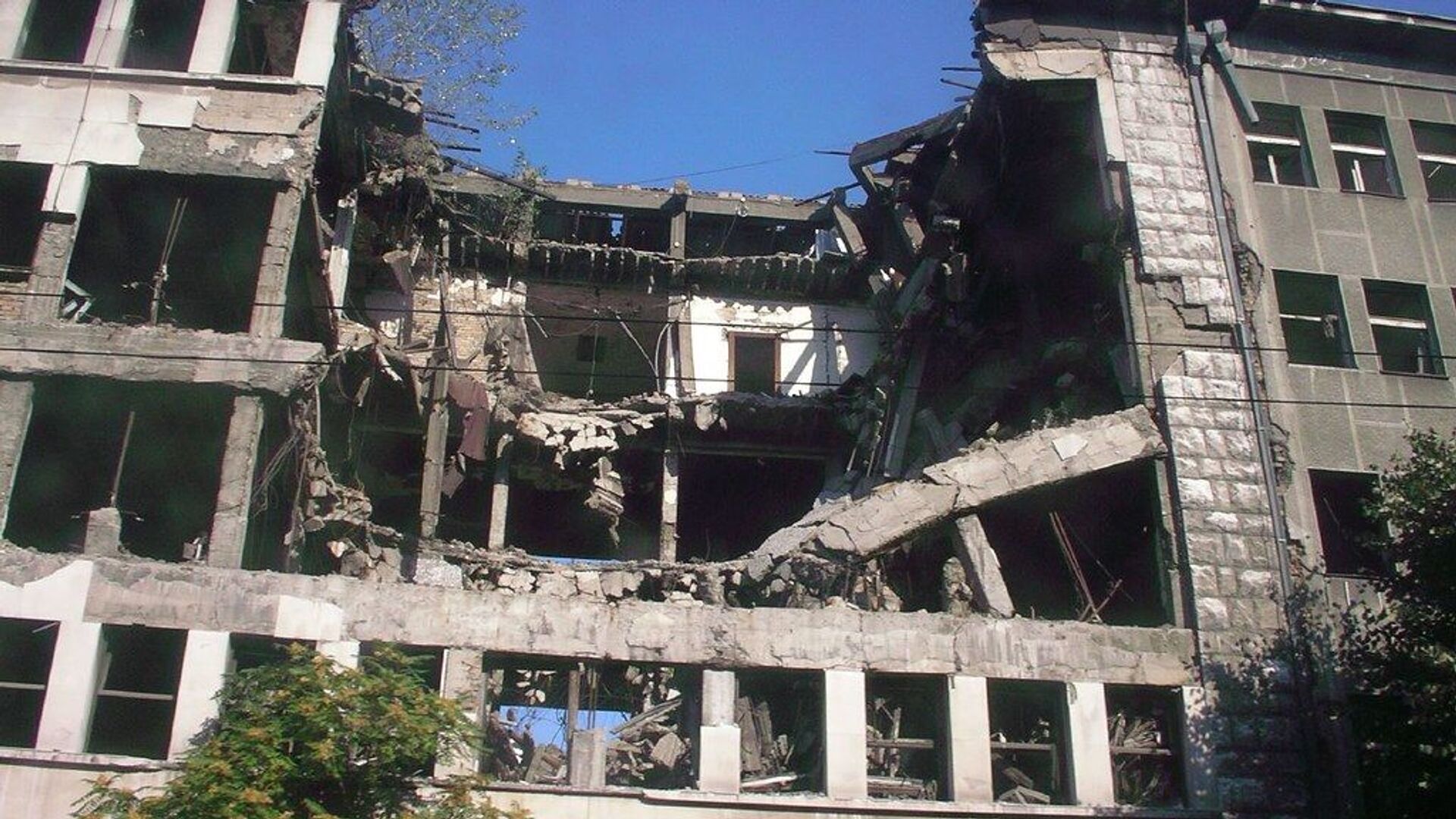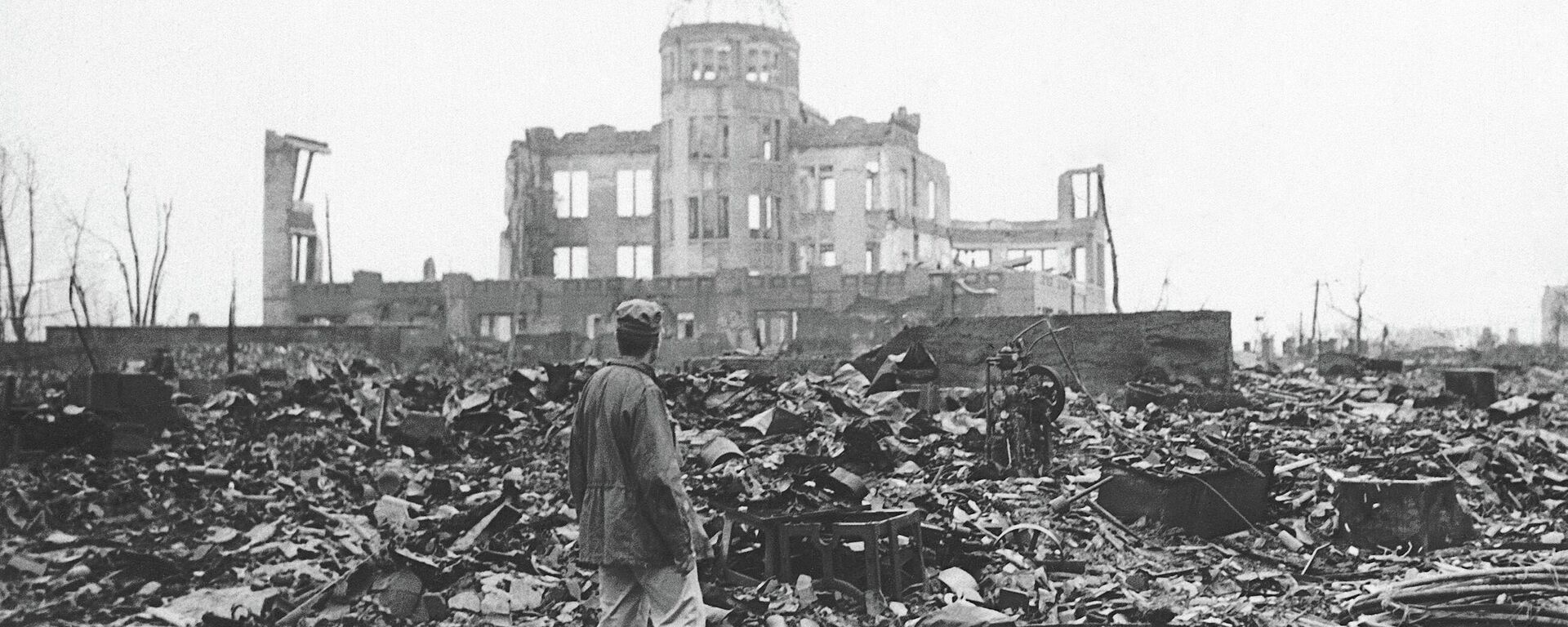https://en.sputniknews.africa/20240324/putin-calls-1999-nato-bombing-of-serbia-great-tragedy-war-launched-by-west-1065740073.html
Putin Calls 1999 NATO Bombing of Serbia ‘Great Tragedy,’ War Launched by West
Putin Calls 1999 NATO Bombing of Serbia ‘Great Tragedy,’ War Launched by West
Sputnik Africa
PETROPAVLOVSK-KAMCHATSKY, Russia (Sputnik) - Sunday marks the 25th anniversary of NATO's 78-day aggression against the Federal Republic of Yugoslavia. 24.03.2024, Sputnik Africa
2024-03-24T11:19+0100
2024-03-24T11:19+0100
2024-03-24T17:01+0100
vladimir putin
aleksandar vucic
russia
europe
serbia
north atlantic treaty organization (nato)
international
https://cdn1.img.sputniknews.africa/img/07e8/03/18/1065740202_0:96:1024:672_1920x0_80_0_0_151847d4f20e38c4713dea849efdcfa2.jpg
Russian President Vladimir Putin called the 1999 bombing of Yugoslavia a great tragedy, adding that the West, in fact, launched a war in Europe at that time. The president noted that he does not consider the takeover of Kosovo's Pristina airport by Russian troops in mid-June 1999, which triggered a tense standoff between Moscow and the West, as "daring" and does not "attach as much importance to it as some observers do."Putin also added that it was difficult to speculate whether he would have been able to prevent the NATO bombing of Yugoslavia 25 years ago if he had led the country then. Putin was serving as the head of the Russian Security Council at the time, while Boris Yeltsin was the country's president.In 1999, an armed confrontation between Albanian separatists from the Kosovo Liberation Army and the Serbian army and police led to the bombing of Yugoslavia by NATO forces, which started on March 24 and lasted for over two months. The Serbian authorities say that about 2,500 people, including 89 children, were killed and about 6,000 people were injured in the bombings. Serbian President Aleksandar Vucic said that the use of depleted uranium weapons caused an increase in the number of cancer patients in the country.
https://en.sputniknews.africa/20240112/who-has-washington-bombed-since-1945-1064587215.html
russia
europe
serbia
Sputnik Africa
feedback@sputniknews.com
+74956456601
MIA „Rossiya Segodnya“
2024
Sputnik Africa
feedback@sputniknews.com
+74956456601
MIA „Rossiya Segodnya“
News
en_EN
Sputnik Africa
feedback@sputniknews.com
+74956456601
MIA „Rossiya Segodnya“
Sputnik Africa
feedback@sputniknews.com
+74956456601
MIA „Rossiya Segodnya“
vladimir putin, aleksandar vucic, russia, europe, serbia, north atlantic treaty organization (nato), international
vladimir putin, aleksandar vucic, russia, europe, serbia, north atlantic treaty organization (nato), international
Putin Calls 1999 NATO Bombing of Serbia ‘Great Tragedy,’ War Launched by West
11:19 24.03.2024 (Updated: 17:01 24.03.2024) PETROPAVLOVSK-KAMCHATSKY, Russia (Sputnik) - Sunday marks the 25th anniversary of NATO's 78-day aggression against the Federal Republic of Yugoslavia.
Russian President Vladimir Putin called the 1999 bombing of Yugoslavia a great tragedy, adding that the West, in fact, launched a war in Europe at that time.
"A great tragedy. What the West has done is unacceptable. Without any resolution of the UN Security Council they started direct military actions, in fact, a war in the center of Europe," Putin said in an interview for a documentary that was broadcast by Russia's Rossiya 24 channel on Sunday, on the 25th anniversary of the start of the NATO bombing.
The president noted that he does not consider the takeover of Kosovo's Pristina airport by Russian troops in mid-June 1999, which triggered a tense standoff between Moscow and the West, as "daring" and does not "attach as much importance to it as some observers do."
Putin also added that it was difficult to speculate whether he would have been able to prevent the NATO bombing of Yugoslavia 25 years ago if he had led the country then. Putin was serving as the head of the Russian Security Council at the time, while Boris Yeltsin was the country's president.
In 1999, an armed confrontation between Albanian separatists from the Kosovo Liberation Army and the Serbian army and police
led to the bombing of Yugoslavia by NATO forces, which started on March 24 and lasted for over two months.
The Serbian authorities say that about 2,500 people, including 89 children, were killed and about 6,000 people
were injured in the bombings. Serbian President Aleksandar Vucic said that the use of depleted uranium weapons caused an increase in the number of cancer patients in the country.


